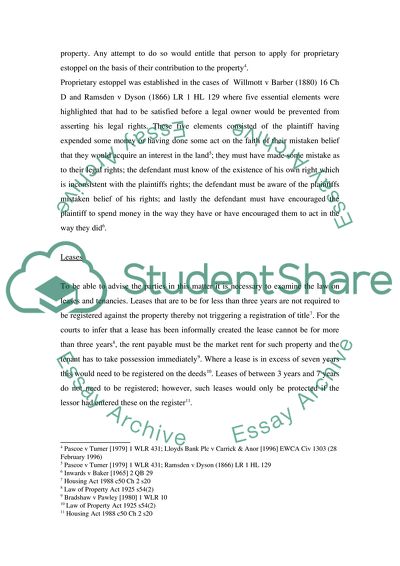Cite this document
(The Principle of Overriding Interests, Leases and Rentcharges Coursework, n.d.)
The Principle of Overriding Interests, Leases and Rentcharges Coursework. Retrieved from https://studentshare.org/law/1552232-land-law-and-criminal-law
The Principle of Overriding Interests, Leases and Rentcharges Coursework. Retrieved from https://studentshare.org/law/1552232-land-law-and-criminal-law
(The Principle of Overriding Interests, Leases and Rentcharges Coursework)
The Principle of Overriding Interests, Leases and Rentcharges Coursework. https://studentshare.org/law/1552232-land-law-and-criminal-law.
The Principle of Overriding Interests, Leases and Rentcharges Coursework. https://studentshare.org/law/1552232-land-law-and-criminal-law.
“The Principle of Overriding Interests, Leases and Rentcharges Coursework”. https://studentshare.org/law/1552232-land-law-and-criminal-law.


